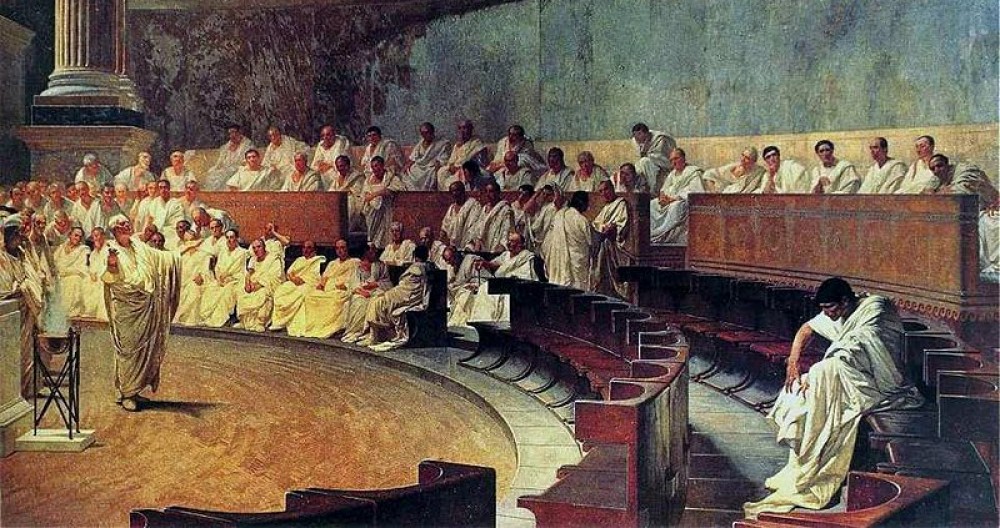In writing his history of the Catiline Conspiracy, Sallust focused predominantly on characterising Catiline as immoral. Indeed, he presents Catiline as an incarnation of some fundamentally perverse evil, “contrary to divine and human law.” It is through this characterisation that Sallust was able to empower Romans to re-evaluate the human capacity for immorality. This achievement was able to provoke a popularity surge for Sallust as an ancient historian, and for Cicero as a man who uncovered this immorality. However, in light of the fact that during his political career, Sallust’s own immoral actions had been questioned openly by the Senate, this history was a somewhat ironic and provocative work. It is for this reason that I believe Sallust’s history should be considered a product of his desire to crystallise his name in historical memory, and to ensure that it did so as one associated with a ‘moral’ connotation.
Although it remains on the historical record, the fact that Sallust’s personal history of immorality seems to bear no impact on his popularity demonstrates the success of Bellum Catilinae in reconfiguring public opinion towards him. Politically, it was necessary for Sallust to achieve this because his success along the Cursus Honorum, the main Roman political career path, had been tainted by Senatorial accusations of his immorality. Primarily, the fact that Sallust has defied his “rehabilitation” by embroiling himself in a corruption scandal, demonstrates that his history would come to define his political career. It was of fundamental importance that he defined his life by a different token. Indeed the success of his books in antiquity with ancient historians is reflective of the way in which his histories were able to achieve a realignment of popular opinion on him.
At the centre of his ‘immorality’ were two events which plagued his political career. Although he was popular to the extent that he was elected a tribune (a special politician with a veto power who was elected by the plebs) he was expelled from the Senate in 50BC because of immoral behaviour. This term must remain vague because the historical record itself is vague – whether he was immoral according to Roman tradition, religious ethics or by abusing the powers vested in him remains ultimately irrelevant. Increasingly, Sallust associated with Julius Caesar who effectively repaired and restored Sallust’s image to the point that by 46 he had become a praetor, and subsequently pro-praetor (ex-praetor/governor) of Africa Nova. However, he was discovered to have extorted great wealth from the provincial treasury and to have used much of it’s finances to his own gain, and ostensibly it was only by Julius Caesar’s intervention (potentially the result of a bribe) that Sallust had been spared a second condemnation.
In response to these two events, Sallust used his wealth to purchase the Horti Sallustiani – the Sallustian Gardens – and to enact patronage as a means of clearing his name. Sallust was never able to recover his previous political successes and ultimately he relied on Julius Caesar to exert any political influence. The fact that Julius Caesar’s death in 44 BC was almost immediately followed by Sallust’s retirement from public life indicates the substantial concern he had that his image would cost him his life. This combined with his attempts at patronage demonstrates the extent to which he was consumed by the need for rehabilitating that very image. In this vein, the extensive focus on the moral failings of Catiline – and using them as explanation for much of Rome’s own criminal activity – can be seen as an extension of those attempts to repair the perception of Sallust. As the pre-eminent historical record of the Catiline Conspiracy, Sallust’s history became the defining feature of his life and as a result the moral failings of his political career are less significant as a factor in judging his character. In essence, the fact that his piece is so historically crucial fulfils Sallust’s objective in enshrining his name in the historical record, and doing so without the attachment of an ‘immoral’ connotation to his name.
